Pursuit of Play, volume 10: the Wrap Up
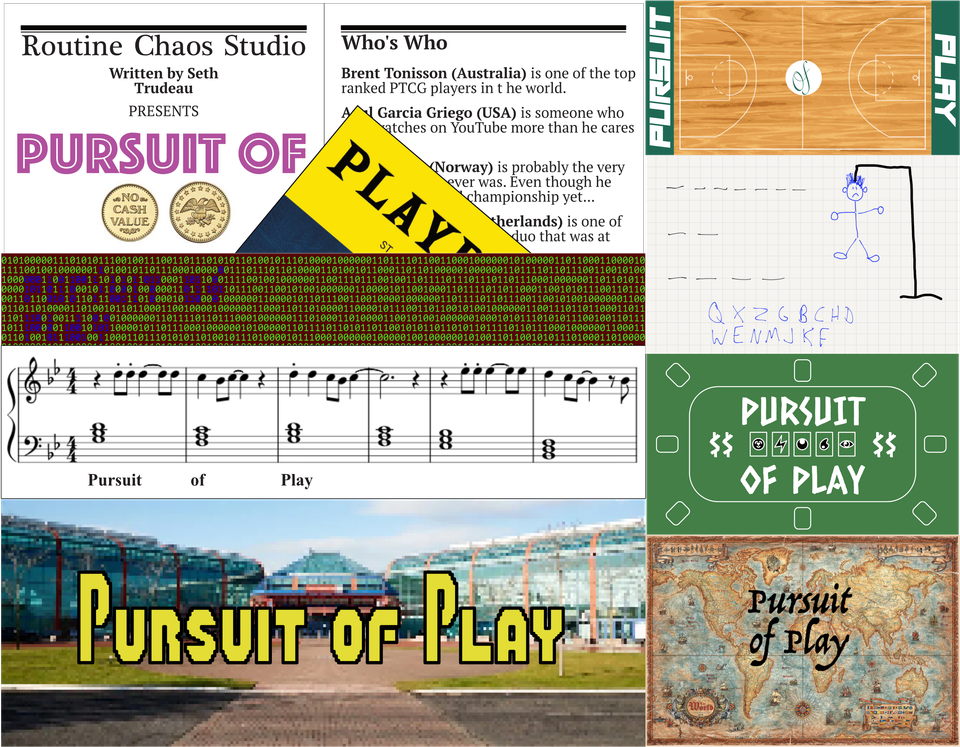
A programming note to kick off today’s edition: I think this will be the last edition of Pursuit of Play. I like having a terminal series, rather than an open ended one. The 2023-24 Pokemon season had the Pokemon Travelogue, and the 2024-25 season had Pursuit of Play…and that season is now officially over. The 2025-26 season is going to look a bit different for us[1], so I think it will occasion a new series…or maybe it will just be PoP, volume 2…but it’s nice to bring something to a close. For the season, we played 8 tournaments in 6 different countries[2].
Don’t worry - the Routine Chaos newsletter will keep publishing, as will Nerd Notes[3], and the odds are good that we’ll kick off a new series in the autumn.
And if you’re just joining us, all previous editions can be found here.
Reflections on Play
The Pokemon North American International Championship happened this past weekend, and in the leadup to the event - an event which I would not be in attendance - I was listening to a podcast about it and was struck by how much more than just the competitive game happens at these events. And, to be precise, it’s actually competitive games; at every regional tournament, the competition involves the card game, the video game, and Pokemon Go. At the international tournaments, they expand even more to include the Pokemon Unite team battle video game.
But that wasn’t even what they were talking about. They were talking about side events and expanded tournaments, trading areas, and merch shops. And they were only scratching the surface: they didn’t mention coloring contests, yoga sessions, or photo ops with costumed characters.
What happens at a tournament is quite varied and goes so far beyond just competition. It occurred to me that one way to measure play is by the scope, variety, and depth of the ecosystem that play can sustain.
The core mechanic of Pokemon - a team of pocket monsters battling against each other - creates a lot of potential variety for play that makes the ecosystem pretty rich from the jump, and then we can add in the layers of narrative and parasocial relationships that moves it from game-based play to also include imaginative play. Pokemon has a lot going on.
But I also want to be careful to say that deeper or more vast ecosystems aren’t necessarily better; these criteria just give us language for understanding the kind of thing that we are interacting with. Pokemon is a thing whose design encourages the formation of a diverse community, and I think that’s good - but I don’t think everything needs to be that. Another game that gets a lot of play in our household is Exploding Kittens (and, maybe even more, its sister game Unstable Unicorns). These games do not have the same aim or ambition - they aren’t trying to foster some big community. They are trying to give a small group an intense shared experience. In our case, they are giving a family a common touchpoint that we can return to frequently and engage in quickly. We don’t obsess over it. There’s probably a subreddit for it. There might even be some fanfic around it…but that’s extreme behavior, not normative behavior for this kind of game. A small, specific ecosystem can also be a wonderful thing.
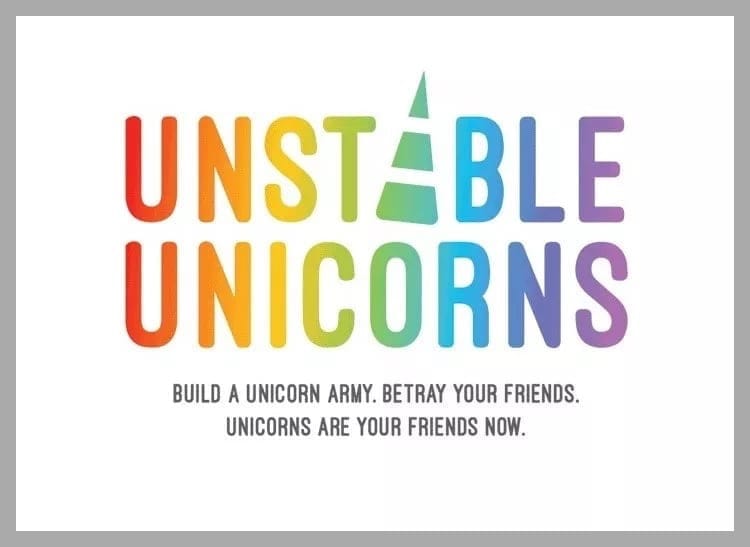
Tangent: I remember that my younger sister had a friend who qualified for the Rock, Paper, Scissors national championship back in the day - and that feels like a deliberately absurd kind of ecosystem. The scope - a national championship - feels at odds with the variety and depth of the activity. It’s a game with, you know, a single action where there are 3 possible choices every time. And, yes, I get that there are tactics around trying to read and interpret body language and all that…but still, the premise is absurd. And also, absurdity isn’t necessarily a bad thing. By identifying that mismatch, it gives us some sense of what the thing is trying to be: the tournament is a place for bonding and validation for the people who are hardcore committed to a niche thing. There’s room in this world for that.
Just because we’re here, let’s do another example: how about that fad of a couple years ago, Wordle[4] . Wordle, on its surface, has about as much variety as Rock, Paper, Scissors - it had an intentional constraint built into it of 1 single round per day made up of 6 guesses. It was designed to be a 15ish minute activity that a person wouldn’t get too deeply sucked into, so in that way it also wasn’t particularly deep. But I think Wordle actually does have a bit more variety and depth hidden within that seeming simplicity, because it spawned a whole genre of Wordle-type games. If you went down this rabbit hole, then at some point you were playing a version of Wordle where you were trying to guess 8 different words at a time, for example. Base Wordle, though, had a very clear scope: it wanted to be a thing that became a part of a person’s daily routine. That is somehow both modest and ambitious. And despite being a single player game, Wordle also escaped its initial boundaries and became a social experience; if it did become a part of your daily routine, there’s a good chance that you were also in a group chat somewhere in which everyone was sharing their Wordle score every day - but never, NEVER, that day’s word[5]. Wordle’s scope became something beyond the original design of its creator - both in the way that it encouraged a form of social play and in the way that it lowered the barrier for players to become creators…which also made possible more hardcore play, in defiance of the original constraint of the game.
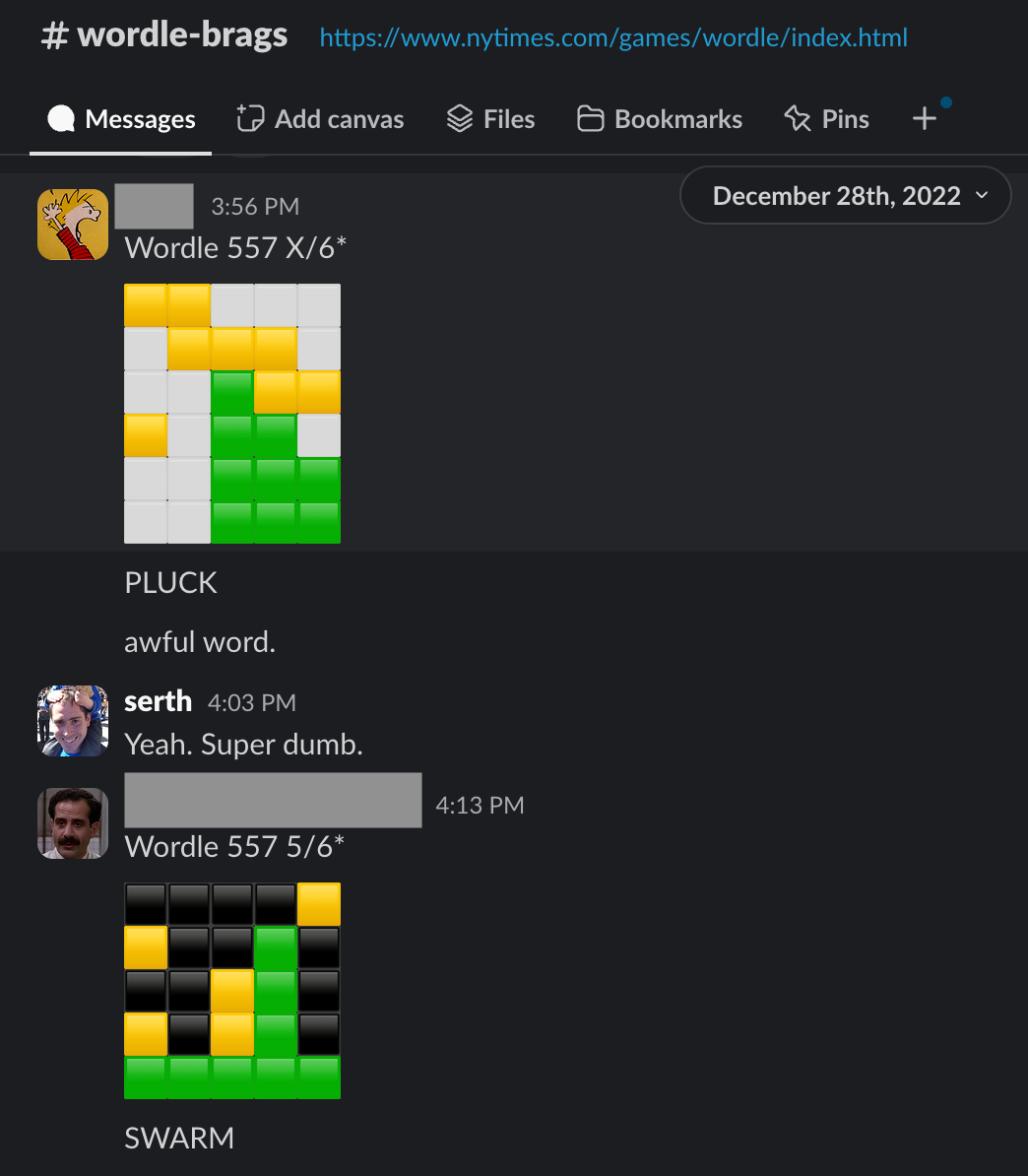
What we learned
About 2/3 of the way through the season, Ray - one of the fellow Pokedads - asked me, “Do your kids show any sign that they’re getting tired of Pokemon?” And I didn’t even need to think about it for a minute - the answer was no. “Yeah, mine either,” he said.
If there’s one big lesson, then, it’s that we really enjoy the game and have a massive capacity for it…but with the caveat that we enjoy the game most within the context of a community of players. Both kids had their best results in the first half of the season, but even as their performance in the second half of the season wasn’t as strong their enjoyment of the events seemed to be even greater.
For Nate, it was because he had built really strong bonds with a handful of other kids and would spend all of his time with them when he wasn’t competing - often just playing the same game, but just for fun.
Tommy’s reach was a little farther: through Discord, he had joined a testing group with a few other Senior division players. He would see them in person exclusively at tournaments. He also over the course of the season became more of a regular at our local league, so at tournaments he’d gravitate toward finding the other members of the league and nerding out on Pokemon with them.
I was more familiar though less close with the other parents this season, because I was spending so much of the tournament playing - but playing gave me a better sense of closeness with the larger community of players. Over the course of 8 tournaments, something like 40 matches of Pokemon, I never faced the same opponent twice. This isn’t mathematically surprising, given that the tournaments all had over 1,000 players in my division, but it demonstrated to me how quickly a basic bond can form between two strangers when they enter into an environment where the terms of the engagement are already so well defined. Some people are adept at navigating any social scenario, but I’m not really one of those people[6] , so that in tandem with how little I cared about being competitive made for a lot of friendly exchanges.
How we did
At the beginning of the season, all the way back in volume 1 we laid out our goals for the season:
Each of us has a goal for the season:Nate really wants that $5k travel award to the World Championship as well as his first ever regional top 8. He came so close on both fronts last year, and with the field looking more open he sees opportunity.Tommy is focused on Worlds qualification. With the step up in level of competition, that feels attainable. Getting into a regional top 8 is a stretch goal.Me? My hopes are nowhere near as grand. Qualifying for worlds is almost an impossibility. Even maxing out points from my local events is going to be difficult, because the Netherlands has 5 players who finished in the top 25 in Europe last year. But I’m not really in it to be ultra competitive. My style in almost all games[1] is more about finding novel and unexpected ways to play, so my goal is to build a rogue deck that can finish in the top half of a regional tournament. The stretch goal is to make it to the second day of a regional tournament.
With the season behind us, we can evaluate these goals. Let’s run through them one by one:
- Nate securing a regional top 8: it happened in our third tournament of the year in Gdansk, Poland. ✅
- Tommy qualifying for the World Championship: with 550 points for the season, Tommy ranked high enough in Europe to qualify. ✅
- Nate getting a travel award: Nate ended up pretty far outside of travel award range in the 56th spot in Europe. ❌
- Tommy landing a regional top 8 (Stretch goal): Tommy did play a win and in to the top 8 in Stuttgart, so they just barely missed out. ❌
- Seth landing in the top half of a regional tournament: you want to know how bought in I was to this goal? I never actually checked to see where I finished in the standings of a tournament, and it never even occurred to me to do so. I’m pretty sure I didn’t do this, based on the quality of my play. ❌
So the kids hit their main goals and missed their stretch goals, but the truth of the matter is that we decided around January that we weren’t going to the world championship this year regardless and will almost certainly skip next year’s world championship as well, so that took the air out of some of our aspirations. We stopped playing local tournaments because we weren’t pursuing the points anymore, so both kids left a couple hundred pretty easy points on the table.
This season played out a lot differently than we expected - it wasn’t the same kind of grand chase that last season was...but we still really enjoyed it. We're hard bitten for Pokemon.
The Highlights
I asked the kids, and theirs were - somewhat obviously - their respective best finishes. Fair enough. I don’t have a such an easy choice, as I consistently had poor finishes, but my highlight of the season nonetheless springs to mind immediately: in Stuttgart, I took the 6 prize turn that I had been chasing all season. I was already eliminated from Day 2 when it happened, as was my opponent so we were both just there for the fun of it, but it was the thing I had been building my deck for all season long and it finally happened. Immensely satisfying.
What comes next
This season we decided midway through that we weren’t going to the World Championships, even though the kids would both qualify. Heading into next season, we’ve already made the same decision. That gives next year an interesting dimension: how do we approach it when we don’t necessarily care about Champion Points? We haven’t totally decided yet, but I do think we may play fewer events - right now, I’m saying if we can’t get there on a train then we’re not going[7]. I think it also means we’re more likely to go deeper into deck building to make our own rogue decks. Finally, I think we may choose to embrace the communal aspect and get even more involved in our local league. Next season’s slate of tournaments haven’t been announced yet - aside from the World Championship in San Francisco - though there are rumors that we’re going to see a lot of new locations.
So Pokemon will still be a thing, but I also have some ideas I’m bouncing around for next year that are more focused on a greater variety of play-based experiences…Watch this space.
I’ll be back soon with some links.
- I’ll get into that a bit below.
- For reference, that’s pretty much the same as last season, just without the World Championship.
- Oh, you nerds, you’re not ready for the nerdy rabbit hole my mind has gone down…coming soon.
- Yes, I know some of you are still playing it.
- Which which direction causation runs is unclear - did you join the group chat because it was a part of your daily routine, or did it become a part of your daily routine because you were in a group chat?
- It’s a skill I’ve learned over the years, but one that causes me a fair amount of stress and drains a lot of my energy when I do it.
- with, maybe, an exception if they put another tournament in Sweden


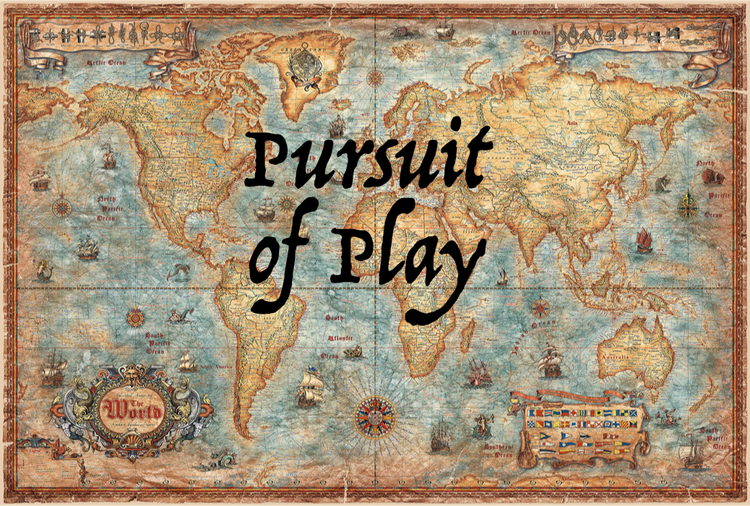
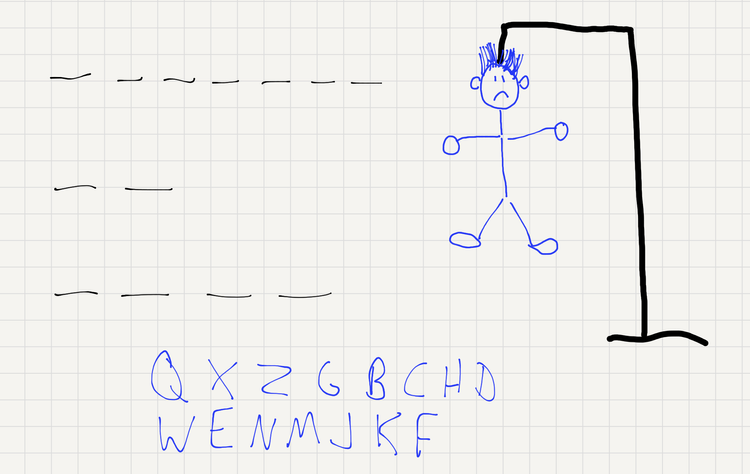

Member discussion